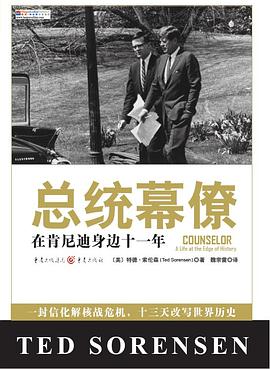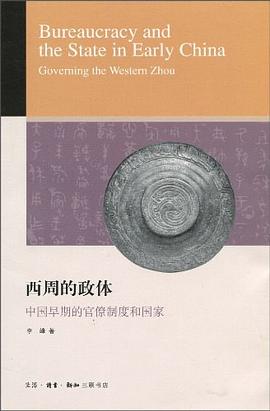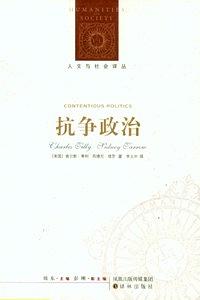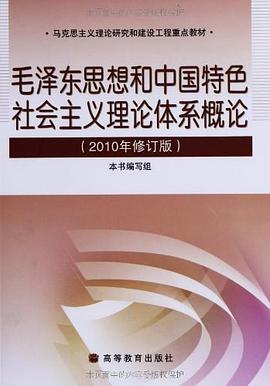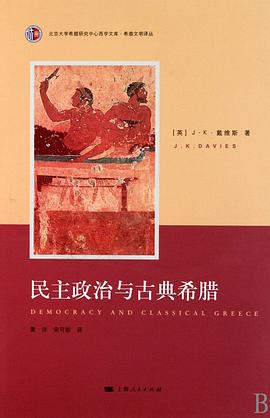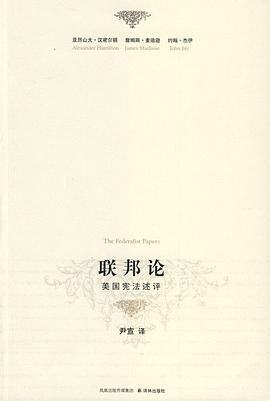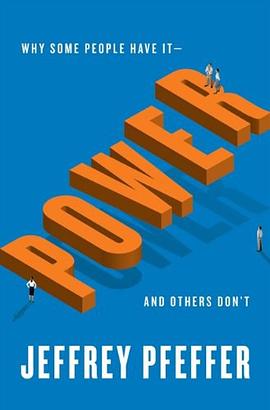

具体描述
In this crowning achievement, one of the greatest minds in management theory reveals how to succeed and wield power in the real world.
Over decades of consulting with corporations and teaching MBA students the nuances of organizational power, Jeffrey Pfeffer has watched numerous people suffer career reversals even as others prevail despite the odds.
Our most common mistake is not having a realistic understanding of what makes some people more successful than others. By believing that life is fair, we tend to subscribe to the “just-world phenomenon,” which leaves us unprepared for the challenges and competition of the real world.
Now Pfeffer brings decades of his incredible insights to a wider audience. Brimming with counterintuitive advice, numerous examples from various countries, and surprising findings based on his research, this groundbreaking guide reveals the strategies and tactics that separate the winners from the losers. Power, he argues, is a force that can be used and harnessed not only for individual gain but also for the benefit of organizations and society. Power, however, is not something that can be learned from those in charge—their advice often puts a rosy spin on their ascent and focuses on what should have worked, rather than what actually did. Instead, Pfeffer reveals the true paths to power and career success. Iconoclastic and grounded in the realpolitik of human interaction, Power is an essential organizational survival manual and a new standard in the field of leadership and management.
作者简介
Jeffrey Pfefferis the Thomas D. Dee II Professor of Organizational Behavior at the Graduate School of Business, Stanford University. He is the author or coauthor of fifteen books, including Leadership B.S., Power, The Human Equation, Managing with Power, and The Knowing-Doing Gap. Pfeffer has led seminars in thirty-nine countries and for numerous US companies, associations, and universities. He has won many awards for his writing, has an honorary doctorate from Tilburg University in the Netherlands, and was listed in the top 25 management thinkers by Thinkers50, and as one of the Most Influential HR International Thinkers by HR Magazine. He lives in Hillsborough, California.
目录信息
读后感
斯坦福大学的组织行为学教授Jeffrey Pfeffer在2010年9月出版了一本书,叫《权力:为什么有人有而有人没有》(Power:Why Some People Have It and Others Don’t?)。我扫了一眼前五章之后,在微博上说:“如果我有一个出版社,我一定会尽所有资源去把这本2010年出版的书捧红,...
评分读这本书,应当是从理论上对以往掌握的知识进行巩固。进入职场,应当首先选择靠近权力中心的部门与位置。好象一首诗吧,大概是杨万里写的,最是西湖六月中,风光不与四时同,接天莲叶无穷碧,映日荷花别样红。表达的是靠近天子的杭州,在中央部门工作虽然级别是一样的,但是权...
评分读这本书,应当是从理论上对以往掌握的知识进行巩固。进入职场,应当首先选择靠近权力中心的部门与位置。好象一首诗吧,大概是杨万里写的,最是西湖六月中,风光不与四时同,接天莲叶无穷碧,映日荷花别样红。表达的是靠近天子的杭州,在中央部门工作虽然级别是一样的,但是权...
评分用户评价
近期,我沉浸在一本关于“力量”的巨著之中,它以一种极其宏大且严谨的视角,对这个概念进行了深入的解构。这本书的厚度,让我感觉它更像是一部关于人类社会互动与结构演变的百科全书,而非一本简单的读物。我花了数周的时间去反复研读,每一次翻开,都能从中获得新的启发。 书中关于“个体选择的真实性与限制”的论述,让我对自己在现实生活中的行动有了更清醒的认知。作者并没有简单地鼓吹个体的绝对自由,而是细致地分析了在各种社会规范、文化传统以及经济条件的制约下,个体能够真正实现自主选择的空间有多大。他用一些颇具启发性的案例,说明了即使在看似被动受限的环境中,个体依然能够通过策略性的思考和行动,去有限地拓展自身的影响力。 我被作者在分析“群体非理性行为的心理机制”时所展现出的深刻洞察力所折服。他并非将群体视为理性的计算集合,而是深入地探讨了情绪传染、群体认同以及信息传播的偏差等因素,是如何影响群体决策的。他对“群体思维”、“羊群效应”以及“媒体的议程设置”等现象的生动解读,让我对很多集体性的失误和成功有了全新的理解。 让我感到惊叹的是,作者在探讨“权力结构的生成与维系”时,所提供的那些令人信服的论据。他并非简单地将权力视为一种静态的分配,而是详细地分析了权力是如何在社会互动中被生成、被维持,以及在某些情况下又如何被挑战和颠覆的。他对“合法性”、“强制性”以及“社会同意”等权力要素的深入剖析,让我对权力的运作有了更全面的认识。 这本书的阅读过程,对我而言是一次深刻的“认知重塑”。作者提出的很多观点都极具挑战性,它们打破了我过去的一些固有思维模式,促使我从一个更广阔、更深邃的视角去理解人与人、人与社会之间的关系。这种“挑战与整合”并存的阅读体验,让我对世界的理解更加丰富和立体。 我尤其欣赏作者在论述“隐性力量的渗透与影响”时所展现出的敏锐。他揭示了那些不直接可见,但却在深刻地塑造着我们价值观、行为模式以及社会走向的力量,比如价值观的代际传递、社会舆论的潜移默化、以及科技发展对社会结构的重塑。他对这些“无形之手”的剖析,让我意识到我们身处一个充满复杂力量纠缠的世界。 令我感到震撼的是,作者在分析“系统性不平等与力量分配”时,所提供的那些发人深省的案例。他通过对不同历史时期和地域的社会结构进行对比研究,揭示了力量分配的不均是如何导致各种形式的不平等的产生,以及这些不平等又如何反过来强化了原有的力量格局。这让我开始更加关注社会结构性的问题,并思考如何才能实现更公平的力量分配。 整本书读下来,我最大的感受是,它让我对“力量”这个词有了更深层次的理解。它不再仅仅是简单的“拥有”或“失去”,而是一种流动的、相互作用的、并且渗透在社会各个角落的能量。这本书为我提供了一个观察和理解世界的全新视角,让我看到了事物背后的复杂性和深刻性。 这本书的写作风格非常独特,作者的语言既有力量感,又不失条理。他善于运用生动形象的比喻和清晰的逻辑,将那些抽象的概念具象化,使得晦涩的理论也变得易于理解。阅读他的文字,就像是在与一位博学的社会学家进行一场关于社会运作机制的深度对话。 尽管这本书的篇幅不菲,但我从阅读过程中获得了巨大的满足感。作者的深度和广度,让我愿意投入更多的时间和精力去理解其中的精髓。它不仅仅是一本具有学术价值的著作,更是一本能够引导读者深度思考,并重新认识我们所处社会运作模式的思想指南。
评分我近期读完了一本让我耳目一新的书,它以一种极其宏大且精密的视角,深入剖析了“力量”这个概念。这本书的篇幅着实令人敬畏,它更像是作者对力量进行的一场全面而深入的社会学、心理学、乃至哲学层面的探讨。我花了数周的时间,在工作之余细细品读,每一次翻开,都能从中获得新的认知。 书中关于“个体力量的觉醒与界限”的论述,让我对自身的能动性有了更清晰的认识。作者并没有简单地鼓励人们去“强大”,而是深刻地分析了在特定社会结构和文化背景下,个体力量的展现方式以及其固有的局限。他用大量的历史和现实案例,阐述了当个体力量突破界限时可能带来的积极和消极后果,让我开始审慎地思考“自我实现”的真正含义。 我被作者在分析“群体力量的形成与演变”时所展现出的逻辑严谨性所折服。他并非将群体视为一个静止的实体,而是深入探讨了群体内部的动态平衡、权力结构的生成以及集体意志的形成过程。他对“社会动员”、“集体认同”以及“群体极化”等现象的剖析,让我对很多社会运动和集体行为有了前所未有的理解。 让我感到惊叹的是,作者在探讨“信息与力量的相互作用”时,所提出的那些富有洞察力的观点。他深刻地揭示了在信息爆炸的时代,谁掌握了信息的入口和出口,谁就掌握了构建现实、影响认知,进而掌握力量的关键。他对“叙事权”、“议程设置”以及“认知偏见”的深入分析,让我开始更加警惕我所接触到的信息,并思考其背后的真实意图。 这本书的阅读过程,对我而言是一次思维上的“洗礼”。作者的很多观点都极具挑战性,它们迫使我跳出固有的思维模式,去从更广阔的视角审视世界。这种“挑战与反思”并存的阅读体验,让我对很多看似理所当然的现象产生了新的疑问,并促使我去寻求更深层次的答案。 我尤其欣赏作者在论述“权力的结构性与非结构性”时所展现出的分析力。他不仅揭示了权力在社会结构中的固有分配,更深入探讨了那些非正式的、非制度化的权力运作方式,比如人脉、影响力以及道德资本。他对这些隐性权力机制的剖析,让我意识到,权力并非仅仅存在于显而易见的职位和财富之中。 令我感到震撼的是,作者在分析“系统性变革中的力量转换”时,所提供的那些复杂而又精妙的论述。他通过对一系列重大社会变革的案例研究,说明了当旧有的力量平衡被打破时,新的力量是如何在裂缝中滋生,并最终重塑整个系统的。这让我意识到,所谓的“稳定”往往是暂时的,而变革的种子,可能就孕育在日常的琐碎之中。 整本书读下来,我最大的感受是,它让我对“力量”这个词的理解,不再局限于简单的“强”与“弱”。我开始认识到,力量是一种无处不在的、相互作用的能量,它体现在个体的选择中,体现在群体的互动中,更体现在整个社会的结构和运转之中。这本书为我提供了一个理解世界运转的全新框架。 这本书的写作风格非常独特,作者的语言既有力量感,又不失理性。他善于用清晰的逻辑和严谨的论证,来构建其宏大的理论体系,同时又能在不经意间流露出对社会现象的深刻洞察。阅读他的文字,就像是在与一位睿智的思想家进行一场关于世界本质的深刻对话。 尽管这本书的篇幅不菲,但我从阅读过程中获得了巨大的满足感。作者的深度和广度,让我愿意投入更多的时间和精力去理解其中的精髓。它不仅仅是一本具有学术价值的著作,更是一本能够引导读者深度思考,并重新认识世界的思想指南。
评分最近我翻阅了一本颇具分量的著作,它以一种我之前从未设想过的方式,对“力量”这一核心概念进行了深刻的剖析。这本书的厚重感,让我觉得它更像是一部关于人类社会互动模式的详尽研究报告,而非一本简单的读物。我投入了大量的精力去消化其中的内容,每一次的阅读都像是在进行一次思维的“考古”。 书中关于“个体能动性的边界与可能性”的论述,让我对自己在现实中的位置有了更清晰的认识。作者并没有简单地宣扬个体的“无限潜力”,而是细致地分析了在各种社会规范、文化传统以及经济利益的制约下,个体能够真正发挥作用的空间有多大。他用一些极具启发性的案例,说明了即使在看似被动受限的环境中,个体依然能够通过策略性的思考和行动,去拓展自身的影响力。 我被作者在分析“群体决策的非理性根源”时所展现出的深刻洞察力所折服。他并非将群体视为理性的计算集合,而是深入地探讨了情绪传染、群体认同以及信息传播的偏差等因素,是如何影响群体决策的。他对“群体思维”、“羊群效应”以及“媒体的议程设置”等现象的生动解读,让我对很多集体性的失误和成功有了全新的理解。 让我感到惊叹的是,作者在探讨“权力结构的动态性与稳定性”时,所提供的那些令人信服的论据。他并非简单地将权力视为一种静态的分配,而是详细地分析了权力是如何在社会互动中被生成、被维持,以及在某些情况下又如何被挑战和颠覆的。他对“合法性”、“强制性”以及“社会同意”等权力要素的深入剖析,让我对权力的运作有了更全面的认识。 这本书的阅读过程,对我而言是一次深刻的“认知重塑”。作者提出的很多观点都极具挑战性,它们打破了我过去的一些固有思维模式,促使我从一个更广阔、更深邃的视角去理解人与人、人与社会之间的关系。这种“挑战与整合”并存的阅读体验,让我对世界的理解更加丰富和立体。 我尤其欣赏作者在论述“隐性力量的渗透与影响”时所展现出的敏锐。他揭示了那些不直接可见,但却在深刻地塑造着我们价值观、行为模式以及社会走向的力量,比如价值观的代际传递、社会舆论的潜移默化、以及科技发展对社会结构的重塑。他对这些“无形之手”的剖析,让我意识到我们身处一个充满复杂力量纠缠的世界。 令我感到震撼的是,作者在分析“系统性不平等与力量分配”时,所提供的那些发人深省的案例。他通过对不同历史时期和地域的社会结构进行对比研究,揭示了力量分配的不均是如何导致各种形式的不平等的产生,以及这些不平等又如何反过来强化了原有的力量格局。这让我开始更加关注社会结构性的问题,并思考如何才能实现更公平的力量分配。 整本书读下来,我最大的感受是,它让我对“力量”这个词有了更深层次的理解。它不再仅仅是简单的“拥有”或“失去”,而是一种流动的、相互作用的、并且渗透在社会各个角落的能量。这本书为我提供了一个观察和理解世界的全新视角,让我看到了事物背后的复杂性和深刻性。 这本书的写作风格非常独特,作者的语言既有力量感,又不失条理。他善于运用生动形象的比喻和清晰的逻辑,将那些抽象的概念具象化,使得晦涩的理论也变得易于理解。阅读他的文字,就像是在与一位博学的社会学家进行一场关于社会运作机制的深度对话。 尽管这本书的篇幅不菲,但我从阅读过程中获得了巨大的满足感。作者的深度和广度,让我愿意投入更多的时间和精力去理解其中的精髓。它不仅仅是一本具有学术价值的著作,更是一本能够引导读者深度思考,并重新认识我们所处社会运作模式的思想指南。
评分近来,我被一本探讨“力量”的书籍深深吸引,它的深度与广度,远超我以往的阅读经验。这本书的厚重感,让我觉得它更像是一份关于人类社会结构与个体行为之间相互作用的详尽考察报告。我投入了相当长的时间去消化其中的内容,每一次阅读都仿佛在进行一次对自我与世界的深度审视。 书中对于“个体自主性的维度与局限”的论述,让我对自己在现实中的决策有了更清醒的认识。作者并没有简单地鼓吹个体的绝对自由,而是细致地分析了在各种社会规范、文化传统以及经济条件的制约下,个体能够真正实现自主选择的空间有多大。他用一些颇具启发性的案例,说明了即使在看似被动受限的环境中,个体依然能够通过策略性的思考和行动,去有限地拓展自身的影响力。 我被作者在分析“群体非理性行为的心理机制”时所展现出的深刻洞察力所折服。他并非将群体视为理性计算的集合,而是深入地探讨了情绪传染、群体认同以及信息传播的偏差等因素,是如何影响群体决策的。他对“群体思维”、“羊群效应”以及“媒体的议程设置”等现象的生动解读,让我对很多集体性的失误和成功有了全新的理解。 让我感到惊叹的是,作者在探讨“权力结构的生成与维系”时,所提供的那些令人信服的论据。他并非简单地将权力视为一种静态的分配,而是详细地分析了权力是如何在社会互动中被生成、被维持,以及在某些情况下又如何被挑战和颠覆的。他对“合法性”、“强制性”以及“社会同意”等权力要素的深入剖析,让我对权力的运作有了更全面的认识。 这本书的阅读过程,对我而言是一次深刻的“认知重塑”。作者提出的很多观点都极具挑战性,它们打破了我过去的一些固有思维模式,促使我从一个更广阔、更深邃的视角去理解人与人、人与社会之间的关系。这种“挑战与整合”并存的阅读体验,让我对世界的理解更加丰富和立体。 我尤其欣赏作者在论述“隐性力量的渗透与影响”时所展现出的敏锐。他揭示了那些不直接可见,但却在深刻地塑造着我们价值观、行为模式以及社会走向的力量,比如价值观的代际传递、社会舆论的潜移默化、以及科技发展对社会结构的重塑。他对这些“无形之手”的剖析,让我意识到我们身处一个充满复杂力量纠缠的世界。 令我感到震撼的是,作者在分析“系统性不平等与力量分配”时,所提供的那些发人深省的案例。他通过对不同历史时期和地域的社会结构进行对比研究,揭示了力量分配的不均是如何导致各种形式的不平等的产生,以及这些不平等又如何反过来强化了原有的力量格局。这让我开始更加关注社会结构性的问题,并思考如何才能实现更公平的力量分配。 整本书读下来,我最大的感受是,它让我对“力量”这个词有了更深层次的理解。它不再仅仅是简单的“拥有”或“失去”,而是一种流动的、相互作用的、并且渗透在社会各个角落的能量。这本书为我提供了一个观察和理解世界的全新视角,让我看到了事物背后的复杂性和深刻性。 这本书的写作风格非常独特,作者的语言既有力量感,又不失条理。他善于运用生动形象的比喻和清晰的逻辑,将那些抽象的概念具象化,使得晦涩的理论也变得易于理解。阅读他的文字,就像是在与一位博学的社会学家进行一场关于社会运作机制的深度对话。 尽管这本书的篇幅不菲,但我从阅读过程中获得了巨大的满足感。作者的深度和广度,让我愿意投入更多的时间和精力去理解其中的精髓。它不仅仅是一本具有学术价值的著作,更是一本能够引导读者深度思考,并重新认识我们所处社会运作模式的思想指南。
评分我最近读完了一本让我眼前一亮的著作,它不像市面上大多数的书籍那样,只是浮光掠影地谈论一些概念,而是将“力量”这个主题剖析得淋漓尽致。这本书的厚度,足以让我在通勤的漫长旅途中,反复咀嚼其中的思想。作者的叙述方式非常引人入胜,他仿佛是一位经验丰富的侦探,带领我们一步步揭开“力量”这个复杂而多面的面纱。 书中关于“个体力量的局限性与潜能”的论述,让我受益匪浅。作者并没有像一些心灵鸡汤那样,一味地鼓吹个体的无限可能,而是审慎地分析了个人在现实环境中的诸多制约因素,同时也深刻地揭示了那些不被我们重视的、却能产生巨大影响的潜藏力量。这让我开始反思,很多时候我们所谓的“无能为力”,可能只是因为我们没有找对发力点,或者低估了自身潜在的能量。 我印象最深刻的是,作者在探讨“群体动力学”时,提供了一系列极具说服力的历史案例。他分析了重大历史事件的发生,以及社会变革的推进,是如何与群体力量的汇聚和释放息息相关的。这让我从一个全新的维度去理解那些波澜壮阔的历史图景,也让我对“集体”这个概念有了更深刻的认识。 作者在书中对“信息传播与权力构建”的关系进行了细致入微的分析,这一点更是让我大开眼界。他阐述了信息是如何被收集、筛选、加工和传播的,以及在这个过程中,谁掌握了信息,谁就掌握了构建话语权和影响力的关键。这让我开始警惕那些看似“客观”的信息,并思考其背后可能存在的意图和操纵。 这本书的阅读过程,对我来说更像是一次思维的“重塑”。作者提出的很多观点,都颠覆了我以往的认知,让我不得不停下来,反复思考,重新审视自己对世界的理解。这种“挑战性”的阅读体验,虽然有时会感到吃力,但带来的思考深度和广度,是任何轻松愉快的读物都无法比拟的。 我特别欣赏作者在分析“力量的循环与反噬”时展现出的深刻洞察。他并没有将力量的获得视为终点,而是强调了力量的动态性,以及如何在获得力量的同时,避免其带来的负面影响,甚至是被力量所反噬。他对“制衡”、“约束”和“反思”的强调,在当今社会依然具有极其重要的指导意义。 让我感到惊喜的是,作者在书中对于“隐性力量”的探讨。他揭示了那些不直接显现,但却能深刻影响我们决策和行为的潜在力量,比如文化惯性、社会规范、以及无意识的偏见。这让我意识到,我们身处在一个充满各种力量交织的网络之中,而很多时候,我们只是其中的一个棋子,却浑然不觉。 整本书读下来,我最大的感受是,它让我变得更加“清醒”。我不再轻易地被表面的现象所迷惑,而是开始去探究事物背后的真相,去理解各种力量是如何相互作用,最终塑造了我们所看到的世界。这种“洞察力”的提升,对我而言弥足珍贵。 这本书的写作风格非常独特,作者的语言既有力量感,又不失细腻。他善于用严谨的逻辑和丰富的论据来支撑自己的观点,同时又能在不经意间流露出深刻的智慧。阅读他的文字,就像是在与一位博学的智者进行一场深入的交流,总能从中获得醍醐灌顶的启示。 尽管这本书的篇幅不菲,但我从未感到厌倦。相反,每一次翻开它,我都能从中发现新的视角和新的思考。它不仅仅是一本书,更像是一位沉默的导师,在我迷茫时给予指引,在我困惑时提供启发。
评分说实话,拿到这本书的时候,我被它厚实的体积吓了一跳,感觉就像是抱着一块砖头,心想这得花多少时间和精力才能啃下来?但抱着试试看的心态翻开第一页,我就被一种莫名的吸引力给拽住了。作者的叙事方式非常吸引人,不像很多学术著作那样死板,他仿佛是一位经验丰富的旅行家,带着你穿越各种思想的丛林,探索那些你从未涉足过的领域。 我印象最深的是,作者在探讨“个人成长与外部环境的互动”时,引用了一个非常巧妙的例子。他把个人比作一棵树,而外部环境则是土壤、阳光和风雨。树的生长,既离不开肥沃的土壤和充足的阳光,也需要风雨的洗礼来塑造坚韧的枝干。这个比喻让我深刻地理解到,一个人的成长,绝不是孤立的,而是与周围的一切紧密相连,缺一不可。 书中关于“信任的建立与瓦解”的论述,更是让我产生了强烈的共鸣。作者深入剖析了信任在人际关系、组织运作乃至社会稳定中的基石作用,并详细阐述了信任是如何一步步被建立起来的,又会在哪些细微之处悄然崩塌。他用了很多生动的案例,比如合作的成功与失败,友谊的维系与破裂,都离不开信任这个看不见却又至关重要的纽带。 我特别喜欢作者在分析“群体心理”时的角度。他并没有简单地将群体成员视为同质化的个体,而是深入探讨了群体内部的动态变化,比如领导者的形成、意见领袖的作用、以及群体情绪的感染和扩散。这让我开始理解为什么有些看似理性的个体,在群体中会做出一些非理性的行为,这背后有着深刻的心理机制在起作用。 这本书的魅力在于,它总能让你在阅读的过程中,不断地将书中的内容与自己的生活经历联系起来。我经常在读到某个章节时,脑海里会浮现出一些亲身经历的场景,然后不由自主地去对照书中提出的理论。这种“自我印证”的过程,让我对书中的内容有了更深刻的理解,也让我对自己的生活有了新的认识。 令我惊叹的是,作者在探讨“复杂系统中的涌现性”时,展现出的洞察力。他以一种极其生动的方式,解释了简单的个体行为如何能够组合成复杂的宏观模式,而这些模式又反过来影响个体。这让我意识到,很多我们看似随机的事件,其实都可能遵循着某种内在的规律,只是因为我们身处其中,难以窥见全貌。 我尤其欣赏作者在讨论“权力与责任”时所持的审慎态度。他并没有鼓吹对权力的追求,而是强调了伴随权力而来的巨大责任,以及如何避免权力腐败和滥用。他对“制衡”和“监督”机制的深入探讨,让我看到了一个健康、可持续的社会运作所必需的条件。 这本书带给我的不仅仅是知识的增长,更是一种思维方式的转变。它让我不再满足于表面的观察,而是去探究事物背后的深层原因,去理解各种力量是如何相互作用,最终形成我们所看到的世界。这种“追根溯源”的思考方式,让我对很多问题有了更清晰的认知。 读完这本书,我感觉自己的视野被大大拓宽了。我开始用一种更广阔的视角去看待人、社会和世界,那些曾经让我困惑不解的问题,似乎都找到了合理的解释。这本书就像一把钥匙,为我打开了一扇通往更深层理解世界的大门。 尽管这本书的篇幅很长,但我从未感到枯燥。作者的语言充满了智慧和魅力,他的论证逻辑严谨,观点深刻独到。每一次翻开这本书,我都能从中获得新的启发和感悟,它是我书架上的一本常读常新之作。
评分这本书我真的花了很长时间才读完,因为它真的太厚了,而且里面充斥着各种我以前从未接触过的概念和理论。一开始我只是抱着好奇心翻了翻,结果就被作者的宏大叙事和严谨的逻辑所吸引。这本书不像市面上很多通俗读物那样,只是简单地罗列一些励志故事或者成功秘诀,而是深入地探讨了“力量”这个概念的本质,从哲学、心理学、社会学等多个角度进行剖析。 我记得有一次,我读到一个关于“个体力量的边界”的章节,作者用了一个非常生动的比喻,将个体比作一个不断膨胀的气球,虽然它有自己的弹性,但终究会受到外部环境的限制。这个比喻让我豁然开朗,意识到很多时候我们所谓的“无能为力”,并非真的是因为能力不足,而是因为我们没有认清自己所处的环境和边界。这本书并没有否定个体的能动性,反而强调了在理解边界的前提下,如何更有效地发挥和拓展自己的力量。 读到后面,作者开始探讨“群体力量”的运作机制,这一点更是让我大开眼界。我一直以为群体力量就是人多力量大,但作者却提出了“协同效应”和“集体智慧”的概念,并用大量的历史案例来佐证。他分析了革命是如何爆发的,组织是如何形成的,甚至是一些文化现象是如何传播的,都与群体力量的某些特定模式息息相关。这让我开始重新审视身边的社会现象,很多以前不理解的事件,在读完这本书后都变得清晰起来。 这本书最让我印象深刻的地方在于,它并没有提供一个普适性的“力量公式”或者“万能钥匙”,而是引导读者去思考,去探索属于自己的力量。作者反复强调,“力量”并非是静态的,而是一个动态的、不断生成和转化的过程。他鼓励读者在阅读过程中,不断地将书中的理论与自己的生活经历相结合,去验证,去反思,去构建自己的理解体系。这种互动式的阅读体验,让我感觉自己不仅仅是在被动地接收信息,而是在 actively engaging with the material. 我不得不说,这本书的阅读门槛确实不低。里面的专业术语不少,有些论证过程也相当复杂。我常常需要反复阅读同一个段落,甚至需要借助其他资料来辅助理解。但正因为如此,当我终于突破了这些障碍,领悟到作者想要传达的核心思想时,那种成就感是无法比拟的。它让我感觉自己不仅读了一本书,更像是完成了一次深刻的自我认知之旅。 让我特别欣赏的是,作者在讨论“力量的负面效应”时,也同样深入。他并没有回避权力滥用、压迫和剥削等问题,而是将它们视为力量失衡或误用的结果。他提出的“力量的制衡机制”以及“道德约束”的重要性,在当今社会仍然具有极强的现实意义。这本书不仅仅是关于如何获得力量,更是关于如何负责任地运用力量。 我记得在读到关于“隐性力量”的部分时,我感到非常震惊。作者描述了那些不显山露水,但却能产生巨大影响的力量,比如舆论的引导、潜意识的暗示、以及长期形成的文化惯性。这让我开始警惕那些我可能并未察觉,但却正在塑造我思想和行为的无形力量。这本书让我变得更加敏锐,也更加警惕。 整本书读下来,我最大的感受是,它颠覆了我很多固有的认知。我一直以为“力量”就是拳头大,就是掌握资源多,但这本书告诉我,力量的形式是多种多样的,它存在于思想的交流中,存在于关系的连接中,甚至存在于对沉默的坚持中。它打开了我看待世界的新视角,让我看到了事物背后更深层次的逻辑。 总而言之,这是一本值得反复阅读的书。第一次读可能只是浅尝辄止,第二次读可能会有新的发现,第三次读,也许就能真正领会到作者的深意。它不是一本“快餐式”的读物,而是需要耐心和投入才能品味出其精髓的“慢餐”。对于任何渴望深入理解世界和自我的人来说,这本书都具有不可估量的价值。 这本书的写作风格非常独特,作者的语言充满了力量感,但又不是那种空洞的口号式宣讲。他善于运用精炼的语言,捕捉到事物的本质,然后用富有感染力的方式呈现出来。即使是讨论那些看似枯燥的理论,在他的笔下也充满了生命力。读他的文字,就像是在与一位智慧的长者进行一场深刻的对话,总能从中获得启发。
评分近期有幸拜读了一本让我印象深刻的书,它以一种极为宏观且深入的视角,探讨了“力量”这一我们既熟悉又陌生的概念。这本书的厚度,仿佛蕴藏着作者数十年如一日对社会运行规律的观察与思考,我花了相当长的时间去细细咀嚼其中的每一句话,每一次的阅读都像是一次思想的旅程。 书中关于“个体选择的自由度与社会约束”的论述,给我留下了深刻的印象。作者并没有简单地赞扬个体的独立性,而是详细分析了在各种社会规范、文化传统以及经济条件的制约下,个体选择的真实空间有多大。他通过一些颇具启发性的案例,说明了即使在看似被限制的环境中,个体依然能够通过策略性的思考和行动,去实现一定程度的自主。 我被作者在分析“群体非理性行为的根源”时所展现出的深刻洞察力所折服。他并非将群体视为理性的集合体,而是深入地探讨了情绪传染、群体认同以及信息传播的偏差等因素,是如何影响群体决策的。他对“群体思维”、“羊群效应”以及“媒体的议程设置”等现象的生动解读,让我对很多集体性的失误和成功有了全新的理解。 让我感到惊叹的是,作者在探讨“权力结构的动态性与稳定性”时,所提供的那些令人信服的论据。他并非简单地将权力视为一种静态的分配,而是详细地分析了权力是如何在社会互动中被生成、被维持,以及在某些情况下又如何被挑战和颠覆的。他对“合法性”、“强制性”以及“社会同意”等权力要素的深入剖析,让我对权力的运作有了更全面的认识。 这本书的阅读过程,对我而言是一次深刻的“认知重塑”。作者提出的很多观点都极具挑战性,它们打破了我过去的一些固有思维模式,促使我从一个更广阔、更深邃的视角去理解人与人、人与社会之间的关系。这种“挑战与整合”并存的阅读体验,让我对世界的理解更加丰富和立体。 我尤其欣赏作者在论述“隐性力量的渗透与影响”时所展现出的敏锐。他揭示了那些不直接可见,但却在深刻地塑造着我们价值观、行为模式以及社会走向的力量,比如价值观的代际传递、社会舆论的潜移默化、以及科技发展对社会结构的重塑。他对这些“无形之手”的剖析,让我意识到我们身处一个充满复杂力量纠缠的世界。 令我感到震撼的是,作者在分析“系统性不平等与力量分配”时,所提供的那些发人深省的案例。他通过对不同历史时期和地域的社会结构进行对比研究,揭示了力量分配的不均是如何导致各种形式的不平等的产生,以及这些不平等又如何反过来强化了原有的力量格局。这让我开始更加关注社会结构性的问题,并思考如何才能实现更公平的力量分配。 整本书读下来,我最大的感受是,它让我对“力量”这个词有了更深层次的理解。它不再仅仅是简单的“拥有”或“失去”,而是一种流动的、相互作用的、并且渗透在社会各个角落的能量。这本书为我提供了一个观察和理解世界的全新视角,让我看到了事物背后的复杂性和深刻性。 这本书的写作风格非常独特,作者的语言既有力量感,又不失条理。他善于运用生动形象的比喻和清晰的逻辑,将那些抽象的概念具象化,使得晦涩的理论也变得易于理解。阅读他的文字,就像是在与一位博学的社会学家进行一场关于社会运作机制的深度对话。 尽管这本书的篇幅不菲,但我从阅读过程中获得了巨大的满足感。作者的深度和广度,让我愿意投入更多的时间和精力去理解其中的精髓。它不仅仅是一本具有学术价值的著作,更是一本能够引导读者深度思考,并重新认识我们所处社会运作模式的思想指南。
评分我近期深入研读了一本关于“力量”的著作,它以一种我之前从未接触过的视角,对这个概念进行了全方位的解读。这本书的厚重感,让我觉得它更像是一部关于人类社会互动模式的百科全书,而非一本简单的读物。我花了不少时间去消化其中的内容,每一次的阅读都仿佛在进行一次思维的探险。 书中关于“个体行为的边界与选择”的论述,让我对自己在现实中的处境有了更深刻的理解。作者并没有简单地宣扬“自由意志”,而是细致地分析了在各种社会规范、文化传统以及经济利益的制约下,个体选择的可能性和倾向性。他用一些颇具启发性的案例,说明了即使在看似受限的环境中,个体依然可以通过巧妙的策略来拓展自身的影响力。 我被作者在分析“群体决策的非理性因素”时所展现出的洞察力所折服。他并非将群体视为理性计算的集合,而是深入探讨了情绪、从众心理、以及非正式的沟通网络在群体决策中的关键作用。他对“群体思维”、“锚定效应”以及“信息茧房”等概念的生动阐释,让我对很多集体性的失误和成功有了更深刻的认识。 让我感到惊叹的是,作者在探讨“权力结构的演变与固化”时,所提供的那些令人信服的论据。他并非简单地将权力视为一种静态的分配,而是详细地分析了权力是如何在社会互动中被生成、被维持,以及在某些情况下是如何被挑战和颠覆的。他对“合法性”、“强制性”以及“同意”等权力要素的剖析,让我对权力的运作有了更全面的认识。 这本书的阅读过程,对我而言是一次意义非凡的“认知升级”。作者提出的很多观点都极具颠覆性,它们打破了我过去的一些刻板印象,促使我从一个全新的角度去理解人与人、人与社会之间的关系。这种“颠覆与重塑”并存的阅读体验,让我对世界的理解更加多元和深刻。 我尤其欣赏作者在论述“隐性力量的渗透与影响”时所展现出的敏锐。他揭示了那些不直接可见,但却在深刻地塑造着我们价值观、行为模式以及社会走向的力量,比如价值观的代际传递、社会舆论的潜移默化、以及科技发展对社会结构的重塑。他对这些“无形之手”的剖析,让我意识到我们身处一个充满复杂力量纠缠的世界。 令我感到震撼的是,作者在分析“系统性不平等与力量分配”时,所提供的那些发人深省的案例。他通过对不同历史时期和地域的社会结构进行对比研究,揭示了力量分配的不均是如何导致各种形式的不平等的产生,以及这些不平等又如何反过来强化了原有的力量格局。这让我开始更加关注社会结构性的问题,并思考如何才能实现更公平的力量分配。 整本书读下来,我最大的感受是,它让我对“力量”这个词有了更深层次的理解。它不再仅仅是简单的“拥有”或“失去”,而是一种流动的、相互作用的、并且渗透在社会各个角落的能量。这本书为我提供了一个观察和理解世界的全新视角,让我看到了事物背后的复杂性和深刻性。 这本书的写作风格非常独特,作者的语言既有力量感,又不失条理。他善于运用生动形象的比喻和清晰的逻辑,将那些抽象的概念具象化,使得晦涩的理论也变得易于理解。阅读他的文字,就像是在与一位博学的社会学家进行一场关于社会运作机制的深度对话。 尽管这本书的篇幅不菲,但我从阅读过程中获得了巨大的满足感。作者的深度和广度,让我愿意投入更多的时间和精力去理解其中的精髓。它不仅仅是一本具有学术价值的著作,更是一本能够引导读者深度思考,并重新认识我们所处社会运作模式的思想指南。
评分最近我读到了一本极具分量的书,它以一种我从未想象过的方式,探讨了“力量”这个我们熟悉又陌生的概念。我花了将近一个月的时间才将其读完,期间无数次地被作者的深刻见解所折服。这本书的厚度,让我觉得它不像是一本书,更像是一部关于力量的百科全书,里面蕴含着作者多年来对这个主题的深入研究和思考。 书中关于“个体与环境的动态博弈”的分析,让我印象尤为深刻。作者并没有将个体视为孤立的存在,而是强调了个人力量的发挥,离不开与外部环境的良性互动。他用了很多生动的例子,说明在不同的环境中,同样的能力可能产生截然不同的结果,这让我开始重新审视自己所处的环境,并思考如何更好地适应和利用它。 我被作者在分析“群体行为的逻辑”时所展现出的洞察力深深吸引。他并非简单地将群体视为乌合之众,而是深入剖析了群体内部的形成、演变以及力量的积聚过程。他对于“领袖魅力”、“群体认同”以及“情绪感染”等因素的细致解读,让我对很多社会现象有了全新的理解,也让我开始更加谨慎地对待群体中的各种声音。 让我大开眼界的是,作者在探讨“隐形力量的运作机制”时,所提供的那些令人信服的论据。他揭示了那些不为人所察觉,但却在悄无声息地塑造着我们思想和行为的潜在力量,比如文化的影响、价值观的渗透、以及社会舆论的引导。这让我开始意识到,我们并非总是自由地做出选择,而是常常受到这些隐形力量的潜移默化。 这本书的阅读过程,对我而言是一次深刻的“智识冒险”。作者提出的很多观点都极具颠覆性,它们挑战了我以往的认知,迫使我不断地去质疑、去反思、去构建新的理解框架。这种“烧脑”的阅读体验,虽然需要付出更多的精力,但带来的思维提升是巨大的。 我尤其欣赏作者在论述“权力的双刃剑效应”时所展现出的严谨。他不仅揭示了力量所带来的巨大潜能,更深刻地阐述了其潜在的危险性。他对“滥用”、“腐蚀”以及“失控”等风险的预警,让我对权力保持了应有的敬畏,也让我开始思考如何建立有效的制约机制。 令我感到震撼的是,作者在分析“系统性力量的涌现”时,所提供的那些复杂而又精妙的解释。他通过大量的案例,说明了简单的个体行为如何能够汇聚成复杂的宏观模式,而这些宏观模式又反过来塑造着个体的命运。这让我意识到,我们所身处的世界,是一个充满着相互关联和影响的复杂系统。 整本书读下来,我最大的感受是,它让我对“力量”这个词有了更全面、更深刻的理解。它不再仅仅是物理上的强弱,或是地位的高低,而是一种更加多元、更加深邃的存在。这本书为我打开了一扇认识世界的新窗口,让我看到了事物运行的本质。 这本书的写作风格非常独特,作者的语言既有力量感,又不失细腻。他善于运用生动形象的比喻和贴切的比喻,将那些抽象的概念具象化,使得晦涩的理论也变得易于理解。阅读他的文字,就像是在与一位循循善诱的导师对话,总能从中获得深刻的启迪。 尽管这本书的篇幅不菲,但我从始至终都保持着浓厚的兴趣。作者的智慧和深度,让我愿意花时间去探索其中的奥秘。它不仅仅是一本读物,更像是一次关于力量的深度探索之旅,让我受益匪浅。
评分文化背景与认知习惯的差异肯定会影响某些判断,但在整个物质生产体系和等级结构中,这些点滴区别已经模糊到混同的程度。或许,更要命可能不在于这些判断的正确性,而在于说出这些判断的形式。从实践与思辨的互动过程来看,“资治通鉴”的形式可能更加人性化一点。
评分关于职场的很多误解和误区,在这里都可以得到与众不同却十分有效的见解/观点。
评分Power is part of leadership and is necessary to get things done.
评分也就是个商学院水平
评分very practical
相关图书
本站所有内容均为互联网搜索引擎提供的公开搜索信息,本站不存储任何数据与内容,任何内容与数据均与本站无关,如有需要请联系相关搜索引擎包括但不限于百度,google,bing,sogou 等
© 2026 book.quotespace.org All Rights Reserved. 小美书屋 版权所有

